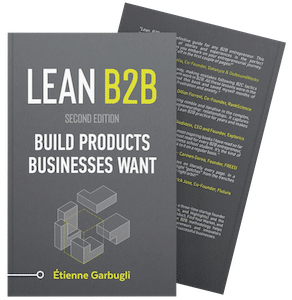If Startup = Growth then Entrepreneurship = Self-Growth.
As businesses scale, grow and mature, their founders need to grow and adapt their skillsets.
The skills and knowledge that got them to product-market fit, won’t necessarily get them through scale and beyond.
To keep up and stay ahead of the game, entrepreneurs need to constantly be learning. There’s going to be thousands of lessons along the way, but here are 21 I feel are key to ensuring business success:
- Your most valuable asset is your network:
- You need to hustle:
- Advisors are not real victories. Funding is not necessarily progress. Keep your eyes on the real prize:
- Shorten the time to product launch:
- Be lean:
- You don’t need to reinvent the wheel:
- It doesn’t have to be complicated:
- Good partners are worth the equity:
- Promotion matters:
- Retention matters:
- Technology won’t be your competitive advantage:
- You need to solve a real problem:
- You need to build a machine:
- The CEO needs to focus on the magic:
- You can easily be led on by customers:
- Company culture can easily break down:
- Not everyone is worth your time:
- You need to make money:
- You can charge more than you think:
- It’s very hard to avoid services:
- If you build it, they won’t necessarily come:
Use your professional network. Ultimately, it’s your best asset.
Silence is not rejection. If someone doesn’t respond to my calls or emails, I simply assume that they are busy and that I need to follow up until they have a moment to respond. — Steli Efti, Close.io CEO
The only things that matter early on are product-market fit and not running out of cash. — Fred Lalonde, Hopper CEO
If you don’t have a product, you don’t have a business. — Tara Hunt, Truly Social Founder & CEO
Details only matter when they can have an impact on real people. — Flagback
New business opportunities can come from changing just 5% of an existing product. — François Lane, Cakemail CEO
Complex ideas are almost always a sign of muddled thinking or a made up problem. — Sam Altman, Y Combinator CEO
It’s better to have 50% of a big thing than 100% of nothing.
90% of startups over-promise. — SaaStr Conference Panelist
Don’t sell people a one-time thing. Make sure you always have recurrence. — Bill Aulet, Author & Entrepreneur
As a small business, your ability to hustle is your competitive advantage. — Ken Morse, MIT Entrepreneurship Centre Founder
It’s really hard to bring something to market without an initial pull like an already-addressed market need or an important problem.
If you don’t find a way to make money while you sleep, you will work until you die. — Warren Buffett, Berkshire Hathaway CEO
You can do everything in a startup, but doing everything will prevent you from being strategic with your actions. — Jean-Philippe Gousse, Product Advisor
“Interesting” is a distraction. Watch out. — HireVoice
Every single person you bring on in the early days changes your culture, in a good or bad way. — Moritz Plassnig, Codeship Founder
Do not over-communicate with low-profit, high-maintenance customers. — Tim Ferriss, Author & Entrepreneur
Don’t try to start something if you don’t know how you’ll make money. — François Lane, Cakemail CEO
The fully-loaded cost of the lowest-paid employee is $4000 per month. At a minimum, your pricing assumptions should use that as basis. — Patrick McKenzie, Serial Entrepreneur
The moment one customer pays you a lot more than any other customer, you’re no longer a product company, you’re a services/consulting company. — Jason Fried, Basecamp CEO & Founder
The hardest part of any business is the marketing/sales cycle, not building the thing. — Martin-Luc Archambault, AmpMe CEO
Anything missing? What other realizations do you think entrepreneurs need to have to make their businesses successful? Tweet at @LeanB2B
More on B2B Startup Founders
- The Real Odds of Success for Startup Founders & B2B Entrepreneurs
- Why Founders Should Not Outsource Sales in the Early Days of Startup
- The 15 Best Startup Books Entrepreneurs Should Read in 2019
Download the First 4 Chapters Free
Learn the major differences between B2B and B2C customer development, how to think about business ideas, and how to assess a venture’s risk in this 70-page sampler.
Working on a B2B Startup?
Join our free email course to learn all you need to know:


